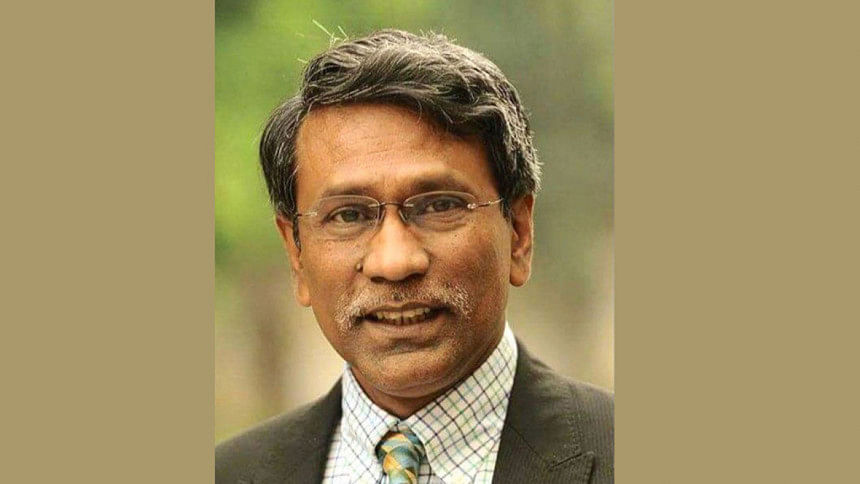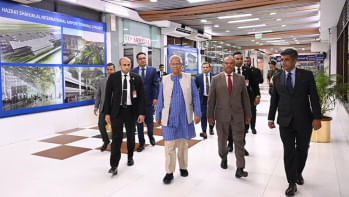Reform process facing internal, external resistance

Both internal and external forces are attempting to obstruct the reform process, National Consensus Commission (NCC) Vice-President Prof Ali Riaz said yesterday.
He described the reform process as the first major opportunity since the 1971 Liberation War to transform the state into an accountable institution.
Speaking at a roundtable discussion titled "Political Consensus and Citizens' Thinking in State Reform" at the capital's CIRDAP auditorium yesterday, he emphasised the need for public participation in the process. The event was organised by Shujan—Citizens for Good Governance.
"Moving forward is impossible without the participation, pressure, and inclusion of citizens," he said. "While political parties represent a large segment of people, they do not represent everyone. Citizens' opinions will be incorporated in parallel with discussions with parties."
Prof Riaz said that Bangladesh's institutions had been severely weakened over the past 16 years due to one-person-centric rule.
"The judiciary has been practically destroyed, and other institutions have been deliberately dismantled. Without establishing an accountable state system, including electoral reforms, the situation will remain unchanged," he said.
While political parties represent a large segment of people, they do not represent everyone. Citizens' opinions will be incorporated in parallel with discussions with parties.
He warned that the current structural system would be unable to prevent future autocratic rule.
Addressing queries about constitutional amendments, he defended the proposal to replace secularism with pluralism while retaining the term "state religion".
"Secularism has become the principle of a single political party, which the people have already rejected," he said. "Pluralism is a broader concept that includes all religions and castes under one umbrella."
He acknowledged that the provision for a state religion clause remained a divisive issue. "Multiple governments have upheld this provision since its inclusion. There is a political reality behind it," he said.
Over 40 percent of 190 countries globally have similar provisions, he added.
Shujan Secretary and NCC member Badiul Alam Majumdar outlined the interim government's three key responsibilities: preventing the return of autocracy, prosecuting crimes against humanity, and transferring power to elected political parties.
"These tasks can proceed simultaneously. Some reforms must be implemented before elections, while others can follow. The Election Commission must be independent and accountable, and a neutral government is essential during elections," he said.
Another NCC member Justice Emdadul Haque reiterated that judicial reform was a critical issue, noting that commissions had already submitted reports.
"Reforms are an ongoing process that will be enriched further by citizens' opinions," he said.
Former Jahangirnagar University Professor Dilara Chowdhury stressed that over 90 percent of people support state reforms, and political parties are aligning with this demand.
"Though parties have their flaws, a country cannot function without them. Reforms must begin within the parties themselves, and necessary changes should be implemented before elections," she said.
Journalist Abu Saeed Khan argued against removing secularism while retaining "state religion", calling the proposal illogical.
"Secularism was not just an Awami League concern; it was a collective movement," he said. He also warned that the constitution should be amended, not rewritten, as the 1972 version was created through national consensus.
Dilip Kumar Sarker, central coordinator of Shujan, presented the keynote paper.
"Following the people's uprising, there is hope that authoritarian or fascist rule will not return and that democracy will be institutionalised," he said. "The ultimate goal is a society based on equality, human dignity, and justice. To achieve this, state reform and a change in political culture are essential."

 For all latest news, follow The Daily Star's Google News channel.
For all latest news, follow The Daily Star's Google News channel. 



Comments